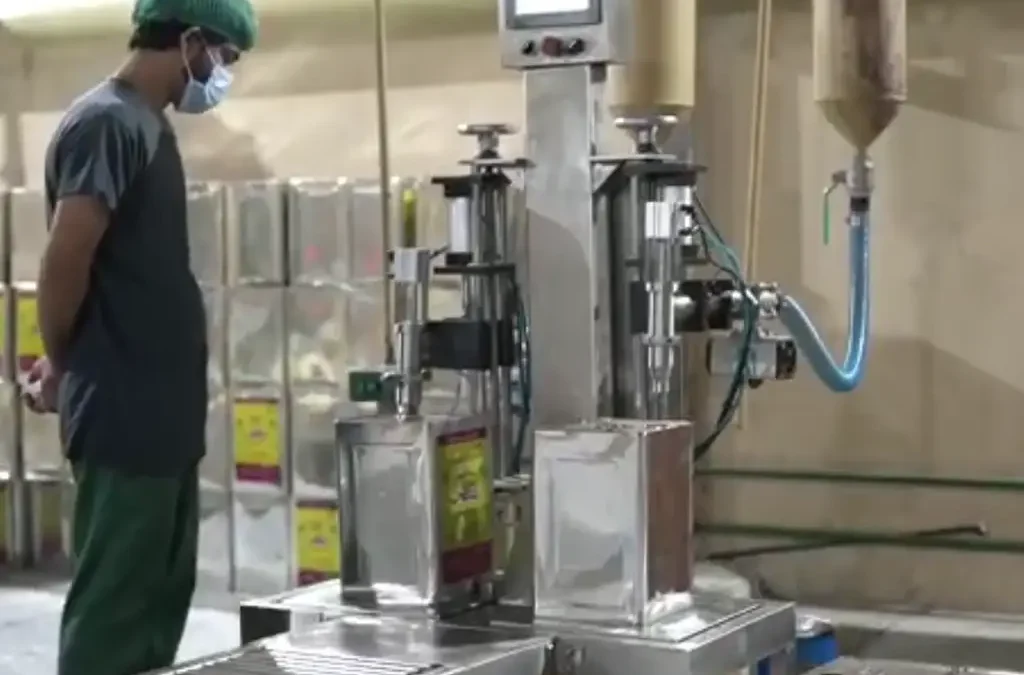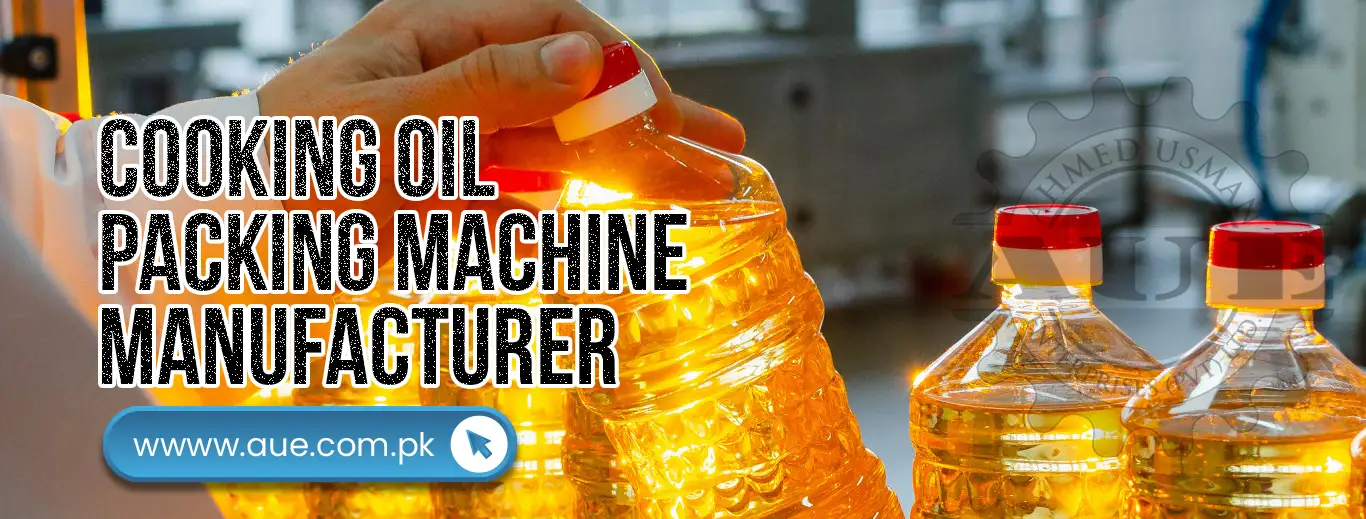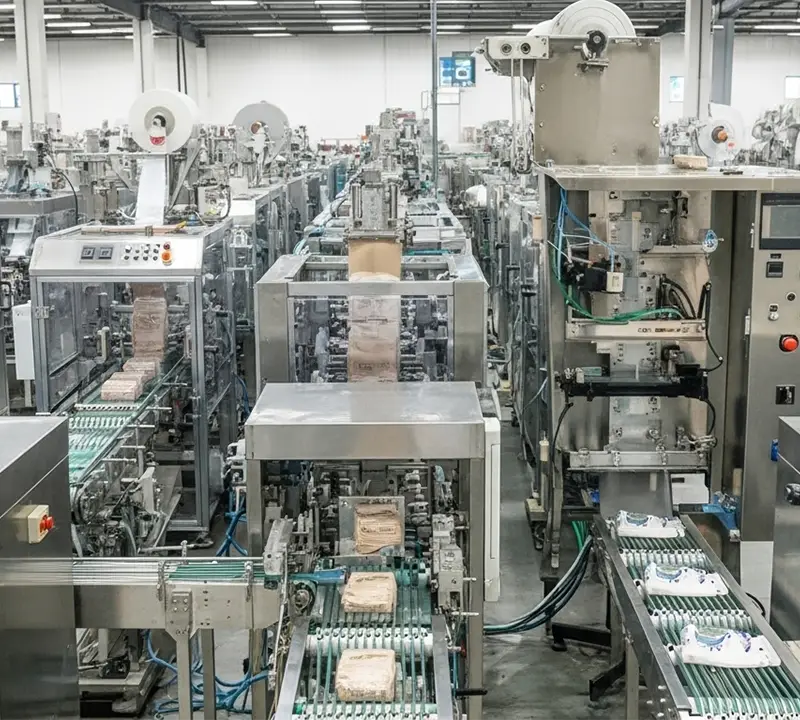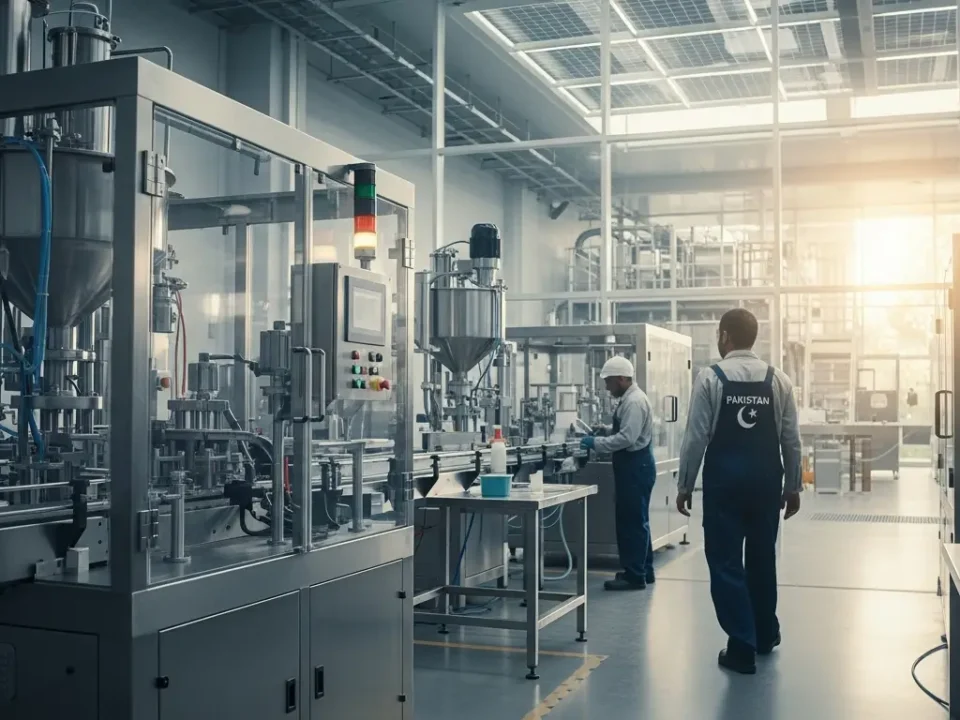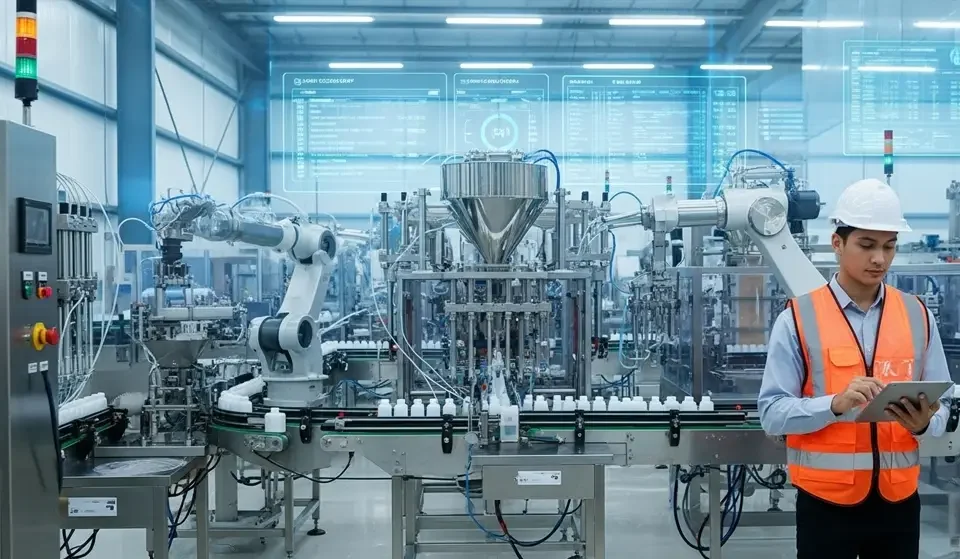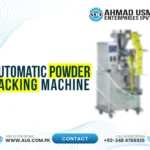
The Ultimate Guide to Automatic Powder Packing Machines
March 8, 2024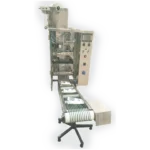
Automatic Form-Fill-Seal Machine for Liquid Products
May 28, 2024Buying the right oil-packing machine is crucial for any business dealing with oil products. It not only streamlines the packaging process but also ensures compliance with industry standards and regulations. With so many options available in the market, making an informed decision can be overwhelming. This ultimate guide will walk you through the essential factors to consider when purchasing an oil packing machine, helping you find the perfect fit for your business needs.
Understanding Oil Packing Machine Types
Oil packing machines come in various types, each designed to handle specific packaging requirements. Here are the most common types:
1. Automatic Piston Fillers
- Ideal for high-viscosity liquids like motor oils, gear oils, and lubricants
- Utilize a piston system for precise filling
- Suitable for a wide range of bottle sizes and shapes
2. Overflow Fillers
- Best suited for low-viscosity liquids like cooking oils and olive oils
- Fill containers by allowing excess liquid to overflow and drain away
- Offer high accuracy and speed
3. Gravity Fillers
- Simple and cost-effective option
- Rely on gravity to fill containers
- Suitable for low-volume operations or small batches
4. Vacuum Fillers
- Designed for sensitive liquids prone to oxidation or foaming
- Utilize vacuum technology to minimize air exposure
- Commonly used in the food and pharmaceutical industries
Key Features to Consider
When evaluating oil-packing machines, several key features should be taken into account to ensure optimal performance and efficiency:
1. Filling Accuracy
- Consistent and precise fill levels are crucial for product quality and compliance
- Look for machines with advanced sensors and control systems for high accuracy
2. Speed and Throughput
- Consider the machine’s filling speed and overall throughput capacity
- Higher speeds are beneficial for large-scale operations, while lower speeds may suffice for smaller businesses
3. Container Compatibility
- Ensure the machine can handle the specific sizes, shapes, and materials of your containers
- Some machines offer changeable parts or adjustable settings for versatility
4. Ease of Operation and Maintenance
- User-friendly controls and intuitive interfaces can simplify operation and reduce training needs
- Easy access to components and clear maintenance instructions can minimize downtime
5. Sanitation and Cleanability
- Look for machines with smooth surfaces, minimal crevices, and easy-to-disassemble parts
- Proper sanitation is essential, especially for food-grade oils
6. Safety Features
- Prioritize machines with built-in safety features like emergency stops, guarding, and spill containment
- Operator safety should be a top priority
7. Automation and Integration
- Automated machines can improve efficiency and reduce labor costs
- Consider integration capabilities with existing systems or future expansion plans
Budgeting for an Oil Packing Machine
Investing in an oil packing machine is a significant financial decision. Here are some budgeting tips to help you make an informed choice:
- Determine your production needs and desired throughput
- Consider the initial cost of the machine, as well as ongoing expenses like maintenance, consumables, and utilities
- Explore financing options, such as leasing or loans, to spread out the investment over time
- Factor in the potential return on investment (ROI) through increased efficiency, reduced waste, and improved product quality
- Don’t forget to account for additional costs like installation, training, and any necessary facility upgrades
Top Brand Recommendations
When it comes to purchasing an oil packing machine, it’s essential to choose a reputable brand known for quality and reliability. Here are some top brand recommendations to consider:
- Ample Packaging: Known for their robust and user-friendly machines, Ample Packaging offers a wide range of options for various oil types and production scales.
- Liquid Packaging Solutions (LPS): With a focus on innovation and customization, LPS provides tailored solutions for specific oil packaging needs.
- FillPro: Renowned for their high-precision and efficient machines, FillPro is a trusted name in the industry, offering both semi-automatic and fully automatic solutions.
- Pak-Matic: Specializing in overflow fillers, Pak-Matic machines are designed for accurate and consistent filling of low-viscosity oils.
- Global Packaging Systems (GPS): GPS offers a diverse range of oil packing machines, from entry-level models to advanced, fully automated systems.
Site Visit and Consultation
Before making a final decision, it’s highly recommended to schedule a site visit or consultation with potential suppliers. This will allow you to:
- See the machines in action and assess their performance firsthand
- Discuss your specific requirements and receive tailored recommendations
- Evaluate the supplier’s expertise, customer support, and after-sales services
- Negotiate terms, pricing, and any customizations needed
Installation and Training
Proper installation and comprehensive training are crucial for maximizing the efficiency and longevity of your new oil packing machine. Make sure to:
- Allocate sufficient space and meet any facility requirements for the machine
- Engage the supplier or a qualified technician for professional installation and setup
- Provide thorough training for operators on proper usage, maintenance, and safety protocols
- Establish clear standard operating procedures (SOPs) and documentation
Continuous Maintenance and Support
Regular maintenance and access to reliable support are essential for ensuring your oil packing machine operates at peak performance over time. Consider the following:
- Establish a preventive maintenance schedule based on the manufacturer’s recommendations
- Stock up on spare parts and consumables to minimize downtime
- Explore service contracts or extended warranties for peace of mind
- Ensure prompt access to technical support and repair services when needed
Compliance and Certifications
Depending on your industry and location, certain compliance standards and certifications may be required for oil packing machines. Make sure to:
- Understand and adhere to relevant local, national, and international regulations
- Look for machines with certifications like CE, UL, or FDA approvals, if applicable
- Implement proper documentation and record-keeping practices for audits or inspections
Sustainability and Environmental Considerations
In today’s eco-conscious business landscape, sustainable practices and environmental responsibility are becoming increasingly important. When selecting an oil packing machine, consider:
- Energy efficiency ratings and potential cost savings
- Minimizing waste through accurate filling and efficient production
- Exploring eco-friendly packaging options or recycling programs
- Choosing a supplier with a commitment to sustainable manufacturing practices
Bullets for Easy Scanning
- Understand different oil packing machine types: automatic piston fillers, overflow fillers, gravity fillers, and vacuum fillers
- Key features to evaluate: filling accuracy, speed/throughput, container compatibility, ease of use, sanitation, safety, and automation
- Budgeting tips: production needs, initial and ongoing costs, financing options, ROI, and additional expenses
- Top brand recommendations: Ample Packaging, LPS, FillPro, Pak-Matic, and GPS
- Importance of site visits and consultations with potential suppliers
- Proper installation, training, and documentation for smooth operations
- Regular maintenance, spare parts, and access to technical support
- Compliance with relevant industry standards and certifications
- Sustainability considerations: energy efficiency, waste reduction, eco-friendly packaging, and supplier practices
FAQs
- What is the typical lifespan of an oil-packing machine? The lifespan of an oil packing machine can vary depending on the brand, quality, usage, and maintenance. However, most well-maintained machines can last anywhere from 10 to 15 years or even longer with proper care and regular servicing.
- Can an oil-packing machine handle different container sizes and shapes? Many modern oil-packing machines are designed to accommodate various container sizes and shapes. Some models offer changeable parts or adjustable settings to accommodate different container types. However, it’s essential to verify the specific container compatibility with the manufacturer or supplier before making a purchase.
- How accurate are oil packing machines in terms of fill levels? The filling accuracy of oil packing machines can vary, but most reputable brands offer high-precision filling within a tolerance range of ±0.5% or better. Advanced sensors and control systems ensure consistent and accurate fill levels, minimizing product giveaways or underfilling.
- What are the typical maintenance requirements for an oil packing machine? Regular maintenance is crucial for ensuring optimal performance and longevity of an oil packing machine. Typical maintenance tasks include cleaning, lubrication, component inspections, calibration, and preventive part replacements. Consult the manufacturer’s recommendations for specific maintenance schedules and procedures.
- Can an oil packing machine be integrated with existing production lines or other machinery? Many modern oil packing machines are designed with integration capabilities, allowing them to be seamlessly incorporated into existing production lines or other machinery. However, it’s essential to verify the specific integration requirements and compatibility with your current systems before making a purchase.
- How important is operator training for oil packing machines? Proper operator training is crucial for ensuring efficient and safe operation of oil packing machines. Comprehensive training should cover machine setup, operation, maintenance, troubleshooting, and safety protocols. Well-trained operators can maximize productivity, minimize downtime, and extend the machine’s lifespan.
- What are the typical energy requirements for an oil packing machine? The energy requirements for oil packing machines can vary depending on the machine type, size, and level of automation. Generally, larger and more automated machines will consume more energy than smaller or semi-automatic models. Consult with the manufacturer or supplier for specific energy consumption data and explore energy-efficient options if needed.
- How important are safety features in oil packing machines? Safety should be a top priority when selecting an oil packing machine. Look for features such as emergency stops, guarding, spill containment, and compliance with relevant safety standards. Proper safety measures not only protect operators but also minimize potential accidents, downtime, and liability issues.
- Can an oil packing machine handle different types of oils or liquids? While most oil packing machines are designed for specific types of oils or liquids, some models offer versatility in handling various viscosities and product types. Always verify the machine’s compatibility with your specific products and consult with the manufacturer or supplier for recommended configurations or adjustments.
- What are the typical costs associated with purchasing an oil packing machine? The costs associated with purchasing an oil packing machine can vary significantly depending on the machine type, size, brand, and features. Generally, you can expect to pay anywhere from a few thousand dollars for a basic semi-automatic model to tens of thousands or more for a fully automated, high-capacity machine. Additionally, factor in ongoing costs such as maintenance, consumables, and utilities.



